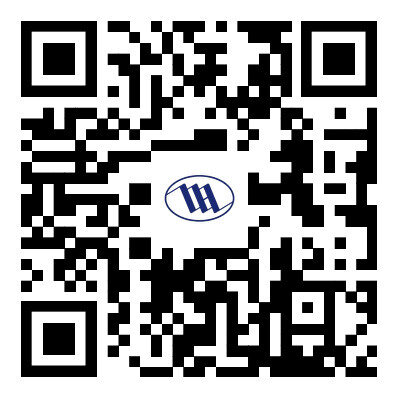Labor and human rights policy
Labor and human rights policy
JIANGSU IL-HEUNG AUTO LIGHT CO .,LTD upholds the human rights of employees in accordance with internationally recognized norms, and gives them dignity and respect. This applies to all employees, including temporary workers, foreign workers, apprentices, contract workers, direct employees, and any other type of employee.
The Code has been drafted with reference to recognized standards such as the Universal Declaration of Human Rights (UDHR), the International Labour Organization (ILO) and the Ethical Trade Initiative (ETI).
JIANGSU IL-HEUNG AUTO LIGHT CO .,LTD labor and human rights standards are:
1) Freedom of choice of employment
Do not employ forced, bonded (including debt-bonded) or indentured, involuntary or exploitative prison labor, slavery or human trafficking. This includes not transporting, harboring, recruiting, transferring, or receiving persons by means of threats, violence, coercion, abduction, or labor and service fraud. There should be no unreasonable restrictions on employees' freedom of movement within the factory and access to company-provided premises, including dormitories and living quarters. As part of the employment process, foreign immigrant employees must be provided with a written employment agreement in their native language, which includes a description of the terms and conditions of employment, before the foreign immigrant employee leaves their country of origin. And after the employee arrives in the receiving country, the employment agreement may not be altered or varied, except for changes made to comply with local laws and provide equal or better conditions. All work must be voluntary, and employees are free to leave or terminate their employment at any time without penalty if reasonable notice is given in accordance with the employment agreement. Employers, intermediaries, or secondary intermediaries may not withhold or otherwise destroy, conceal, or confiscate their identity cards or immigration documents, such as government-issued IDs, passports, or work permits, unless required by law to retain such identification, but in such cases, employers may not deny employees access to their identification information. Employees are not required to pay recruitment fees or other related fees to employers or agents for their employment. If the employee is found to have paid any of the above fees, the fees shall be returned to the employee.
2) Protection against child labor and juvenile labor
Child labor shall not be used in any manufacturing process. "Child labour" means employing any person under the age of 15, or under the age of compulsory education, or the minimum age for employment in that country, whichever of the three is specified to be the largest. Employers should implement appropriate mechanisms to verify the age of workers. Child labour must not be used at any stage of production. Employees under the age of 18 (minor employees) are not allowed to perform work that may jeopardize their health or safety, including night shifts and overtime. Proper management shall be ensured through the reasonable maintenance of student worker records, rigorous due diligence on educational partners providing student workers, and protection of student worker rights in accordance with laws and regulations. Appropriate support and training should be provided to all student workers. Where not required by local law, the wages of student, intern and apprentice workers shall be at least the same as that of entry-level employees performing equivalent or similar positions. If child labor is found, the factory must provide assistance and remedial measures.
3) Maternity protection and health protection for female employees
Commitment to protect the rights and health of women workers by providing work health protection, maternity leave, social welfare, breastfeeding leave and protection against dismissal or discrimination on the grounds of pregnancy. Any offence to terminate the employment of a female worker or to discriminate during pregnancy, maternity or breastfeeding leave is prohibited. In accordance with the relevant legal provisions, female workers are guaranteed the right to maternity leave benefits not less than those prescribed by law and to return to the same or equivalent job with the same benefits after the maternity leave. In addition, appropriate measures must be taken to avoid exposing pregnant/lactating women to high-risk work environments, to eliminate or reduce workplace risks to the health and safety of pregnant and lactating women, including those associated with their work tasks, and to provide appropriate facilities for lactating women.
4) No discrimination/non-harassment
All employees shall be committed to free from harassment and unlawful discrimination. Employees shall not be discriminated against or harassed in the recruitment and employment process (e.g., wages, promotions, rewards, and training opportunities) on the basis of race, color, age, sex, sexual orientation, gender identity and expression, race or ethnicity, disability, pregnancy, religion, political affiliation, community membership, military veteran status, protected genetic information, or marital status. Employees shall be provided with reasonable places for religious activities. In addition, employees or prospective employees should not be forced to undergo medical tests or medical examinations that may be discriminatory purposes, including pregnancy tests and virginity tests.
5) Humane treatment
Do not engage in severe inhumane behavior such as violence, gender-based violence, sexual harassment, sexual abuse, corporal punishment, mental or physical coercion, bullying, public humiliation or verbal abuse against employees; and shall not threaten to commit any such acts. Disciplinary policies and procedures that support these requirements should be clearly developed and communicated to employees.
6) Wages and benefits
Compensation paid to employees shall comply with all applicable wage laws, including those regarding minimum wages, overtime hours, and statutory benefits. Employees should be paid for overtime at a rate higher than the normal hourly wage in accordance with local law. Deduction of wages as a disciplinary measure is prohibited. Employees should be provided with a clear and understandable pay slip in a timely manner for each pay cycle, which should contain sufficient information to be able to account for the accuracy of the remuneration for the work performed. The use of temporary, dispatch and outsourced workers must comply with local legal restrictions.
7) Working hours
JIANGSU IL-HEUNG AUTO LIGHT CO .,LTD recognizes that unreasonable overtime is associated with reduced productivity, turnover and an increase in work-related injuries and occupational diseases, except in emergency or abnormal circumstances, the working hours of a week, including overtime, should not exceed the standard 60 hours specified by the RBA, and employees should have at least one day off every seven days. Comply with local regulations and carry out improvement plans on an ongoing basis, communicate improvement plans to the management and key stakeholders of each business group, including employees, law enforcement agencies and relevant customers, and ensure compliance with international and local regulations and standards through continuous review and communication. Workers must work overtime on a voluntary basis, and they are provided with holidays, leave benefits, and statutory holidays in accordance with applicable laws and regulations.
8) Freedom of association and collective bargaining
Respect the rights of employees in accordance with local laws, including the right to freely associate and join trade unions, engage in collective bargaining and peaceful assembly, and refuse to participate in such activities, in accordance with local laws. Employees and/or their representatives should be able to communicate openly with management and express their views and concerns regarding working conditions and management practices without fear of discrimination, retaliation, threats, or harassment.
9) Diversity, Equity and Inclusion
Diversity, Equity, Inclusion (DE&I), as a value and culture advocacy, has shown strong vitality in the company's culture and workplace life in recent years. JIANGSU IL-HEUNG AUTO LIGHT CO .,LTD corporate culture is committed to promoting diversity, equity, and inclusion in all positions and at all levels of the organization.
Diversity refers to the range of interpersonal differences that exist in the workplace. Ideally, it should reflect the community around you. It goes far beyond race and gender and encompasses a wide range of aspects, including:
Race
Age and life stage
Sexual orientation
Religion
Handicapped
Socioeconomic status
Veteran
Paramedic
Each of these aspects brings unique perspectives, experiences, and contributions. When employees are given a voice and the opportunity to express themselves freely, they develop richer, more dynamic mindsets that lead to greater productivity, innovation, and resilience.
Equity includes listening and understanding, providing people with everything they need to enjoy a full, healthy life. Equity focuses on ensuring that all employees are treated fairly and have access to opportunities and resources. It recognises that individuals have different starting points and barriers to success and seeks to address these differences by providing support and accommodation, as well as removing systemic barriers.
Inclusion aims to create a sense of belonging. An inclusive culture makes employees feel valued, respected, and empowered to contribute their unique perspectives. It involves fostering a collaborative and supportive environment in which diversity is welcomed and respected. It helps individuals thrive and succeed, creating a more efficient, innovative, and sustainable workplace.
10) Rights of minorities and indigenous peoples:
Respect for the rights of minorities and indigenous peoples as set out in the United Nations Declaration on the Rights of Indigenous Peoples.
11) Use of private or public security forces:
Companies using private or public security forces must refer to the requirements of the "United Nations Indigenous United Nations Group of Experts Calling for Robust International Regulation of Private Military and Security Companies";
12) Land, forest and water rights and forced evictions:
Companies should comply with the requirements of the "Guidance Note issued by the UN Committee on Economic, Social and Cultural Rights on States' obligations to guarantee access to, use and control over land, with particular attention to pressing human rights-related issues such as evictions of land users, international investment, conflicts arising from land issues, and climate change";
净零排放措施

企业碳足迹
为了更好地了解和监测企业对气候变化的影响,以企业碳足迹的形式建立公司层面的温室气体排放清单非常重要。因此,自2020年起,我们每年在全球范围内计算企业碳足迹(CCF),包括范围1、2和3的上游排放量。

企业碳足迹
为了更好地了解和监测企业对气候变化的影响,以企业碳足迹的形式建立公司层面的温室气体排放清单非常重要。因此,自2020年起,我们每年在全球范围内计算企业碳足迹(CCF),包括范围1、2和3的上游排放量。

企业碳足迹
为了更好地了解和监测企业对气候变化的影响,以企业碳足迹的形式建立公司层面的温室气体排放清单非常重要。因此,自2020年起,我们每年在全球范围内计算企业碳足迹(CCF),包括范围1、2和3的上游排放量。

企业碳足迹
为了更好地了解和监测企业对气候变化的影响,以企业碳足迹的形式建立公司层面的温室气体排放清单非常重要。因此,自2020年起,我们每年在全球范围内计算企业碳足迹(CCF),包括范围1、2和3的上游排放量。

